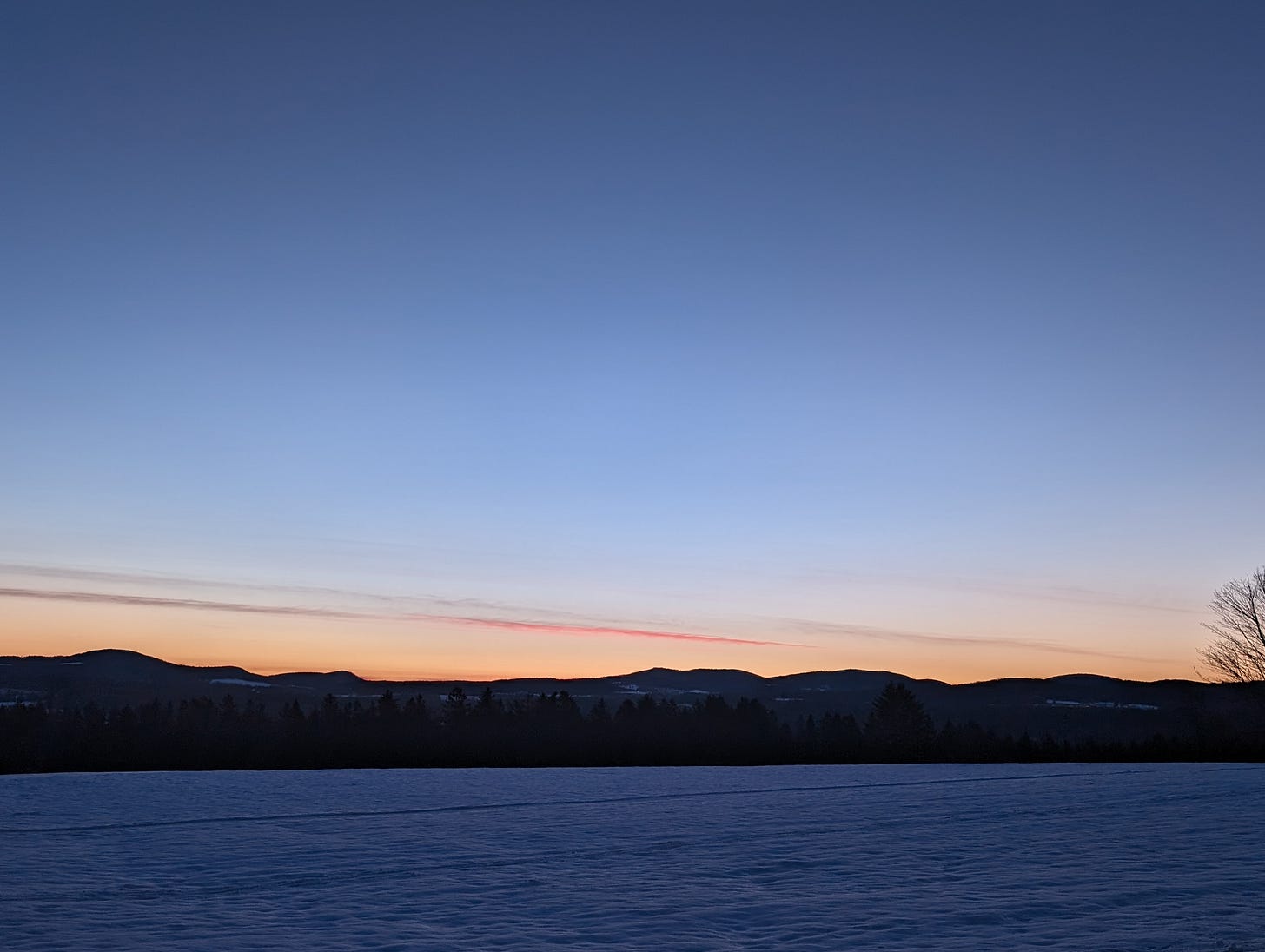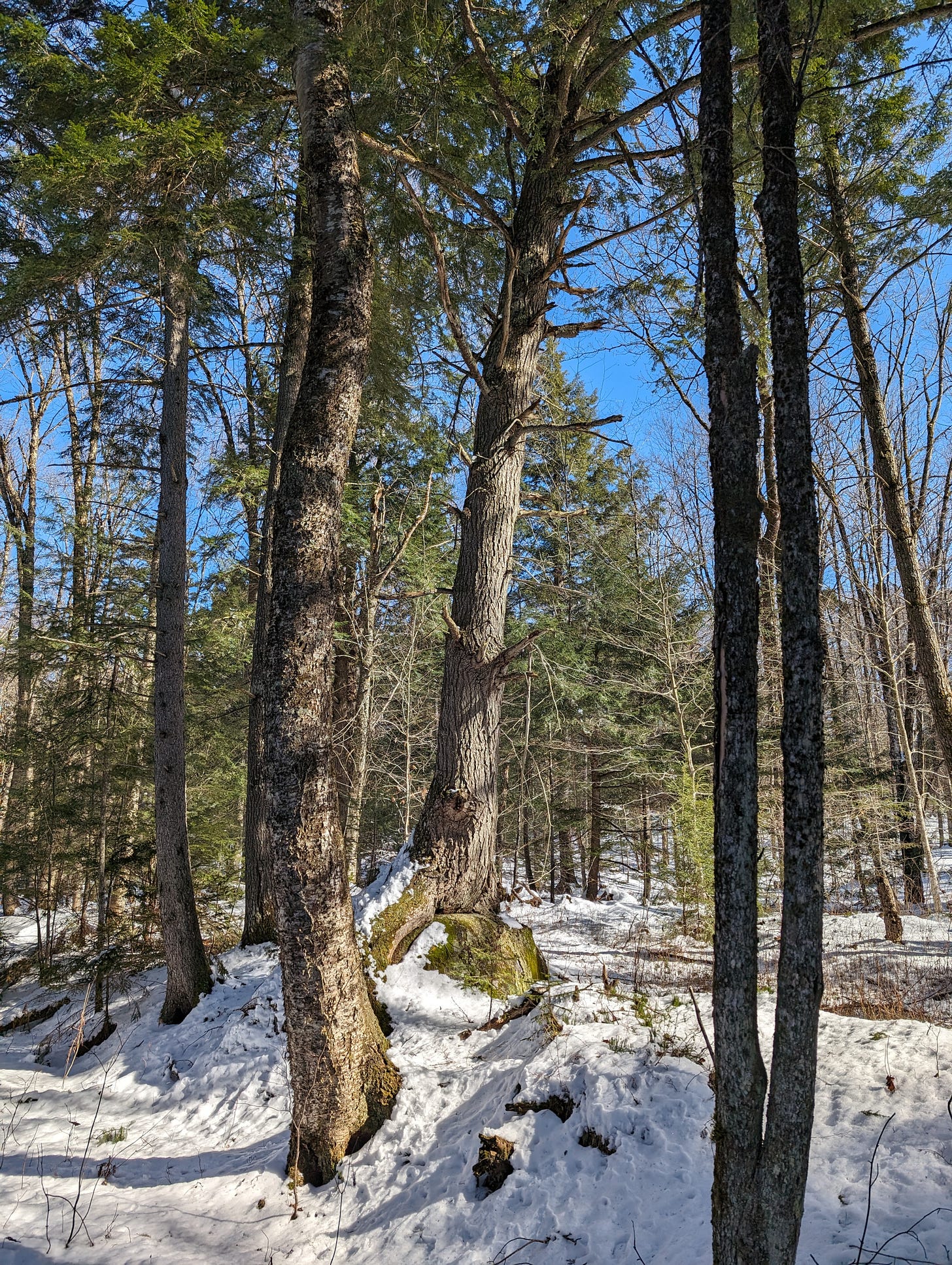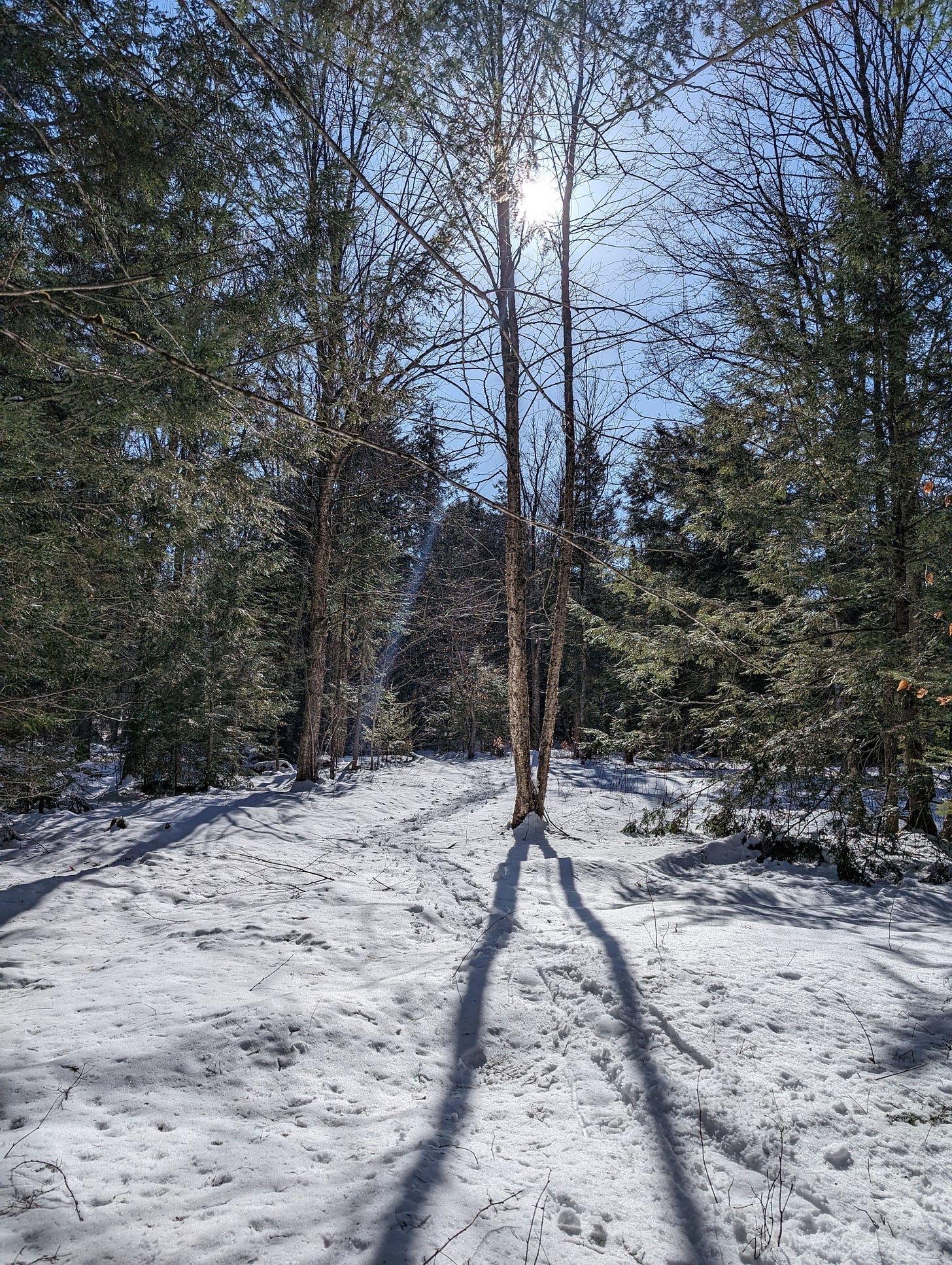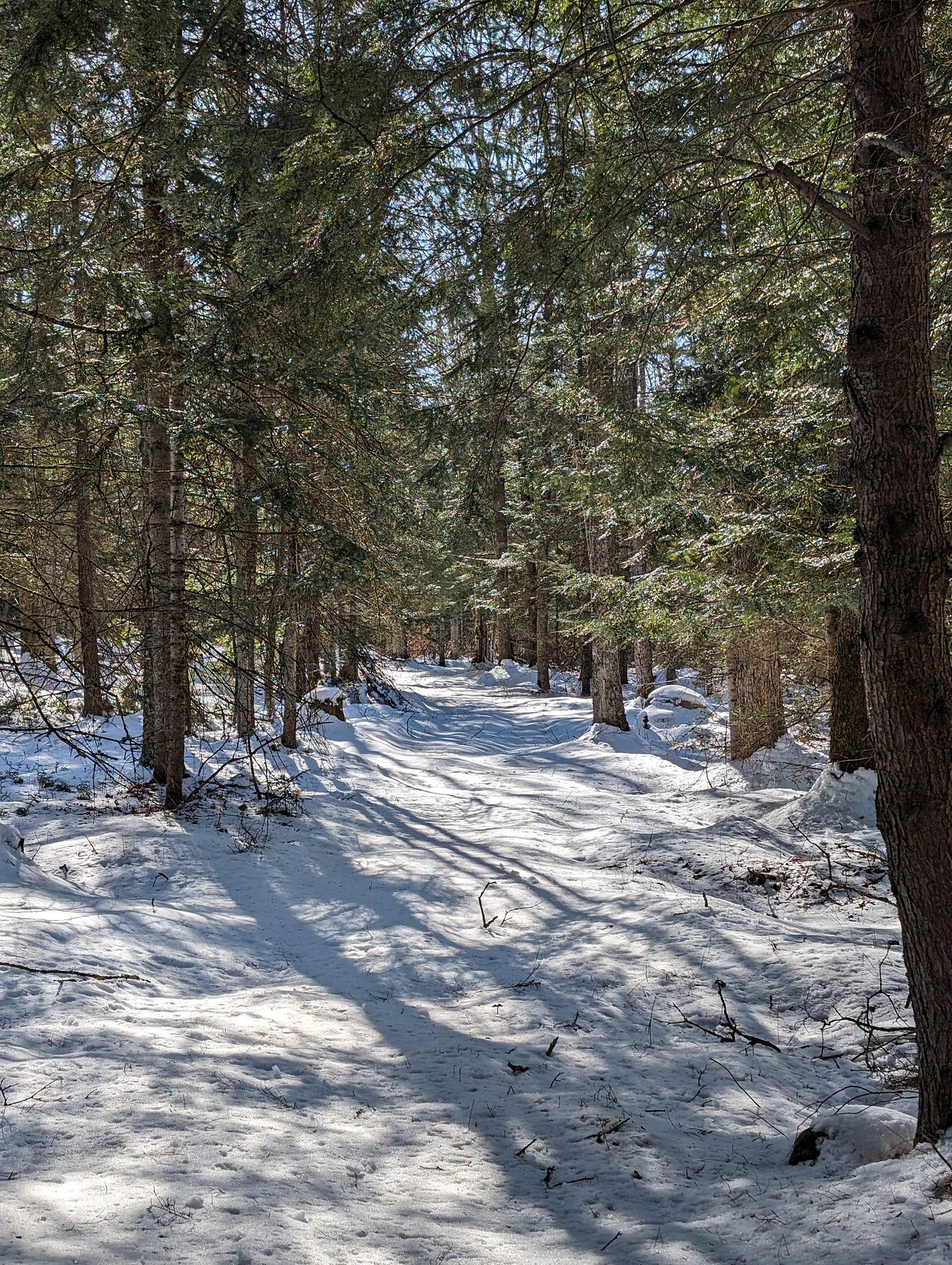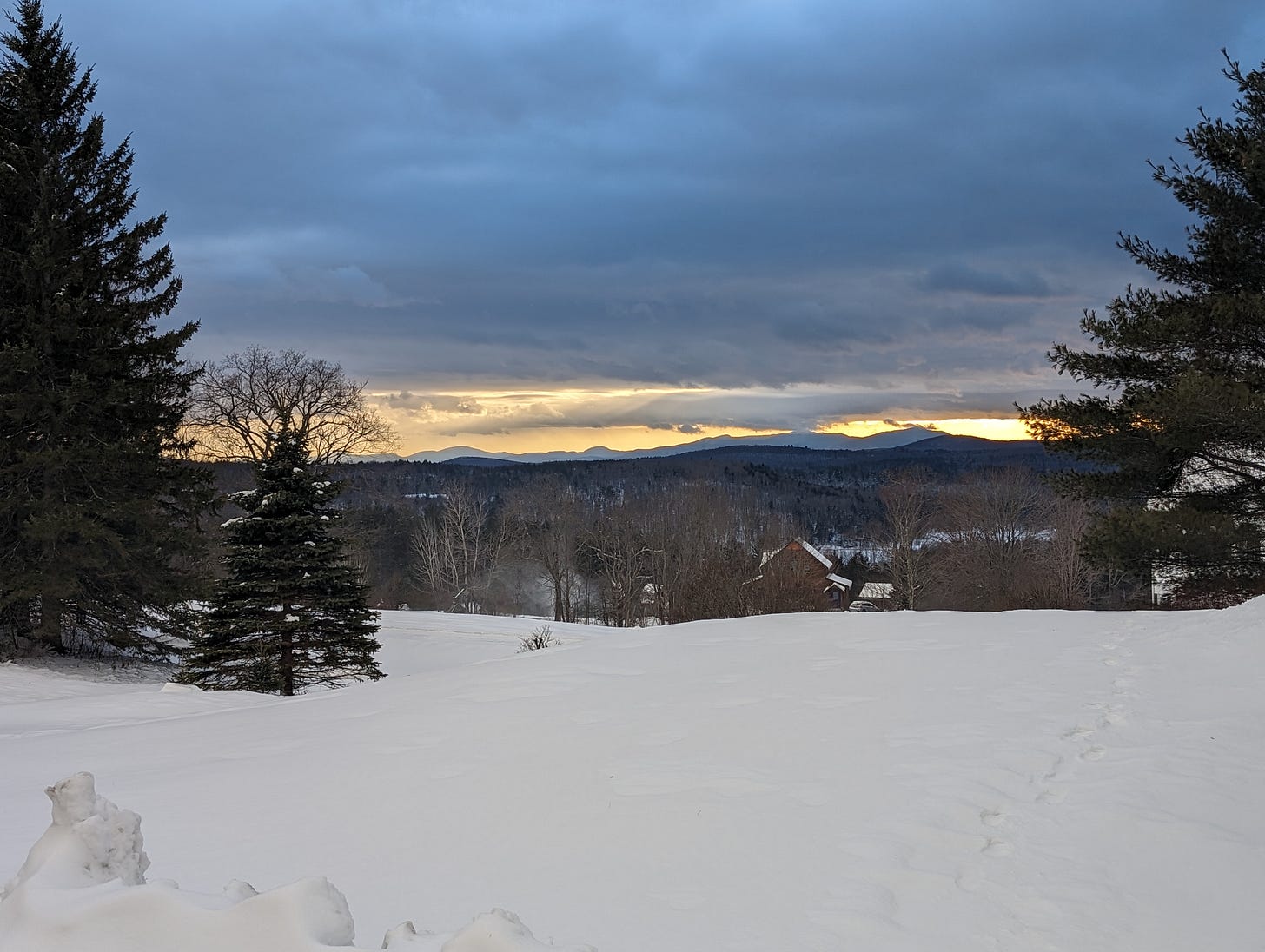Fifth Sunday in Lent
Jesus answered, “The hour has come for the Son of Man to be glorified. Very truly, I tell you, unless a grain of wheat falls into the earth and dies, it remains just a single grain; but if it dies, it bears much fruit.
Those who love their life lose it, and those who hate their life in this world will keep it for eternal life.
Whoever serves me must follow me, and where I am, there will my servant be also. Whoever serves me, the Father will honor.
Now my soul is troubled. And what should I say — ‘Father, save me from this hour’? No, it is for this reason that I have come to this hour.”
John 12:23-27
Who were you?
The Grain
From my algorithms at least, I was surprised how few observed that last week marked four years since the second week of March 2020. What were you doing? Maybe we want to forget.
But I do remember what I was doing when the world shut down, as I’m sure you remember. It was over halfway through my first year of divinity school, and my preaching class was the first minor casualty in my life. The campus was locked down, so our professor had us preach in his church fellowship hall instead. We were not yet familiar enough with Zoom to transition to online, but the hall was big enough to start practicing what would become a haunting phrase, “social distancing.” Vaccines and elections and a million hot takes later, we didn’t know how true this would be. I preached on Mark 2:1-2, still a favorite text, on how when we’re caught between fight, flight, and freeze, the love of Christ gives us more options. I still believe this, though I also have come to see this with more scar-born complexity and sometimes spilled blood. And I have also seen how the love of Christ not only gives us options but challenges something of who we are, too.
I remember many more things and people from that era that still bring up emotions. A different relationship with someone I still deeply care about, a different social life from what seems like a dream, and some very different theological views on some topics. The next four years, marked by all the death (and fear of it) in the world, brought many deaths for me that I did not ask for or easily accept.
It is much easier to answer what and where I was up to than to say who I was. I know I’m related to who I was four years ago, but I know I’m not that same person. I have no idea who I’ll be in several years, either. Who were you? Who are you?
We can’t help but bind these questions together, for who we are today is of course related to who we used to be, while who we become is ultimately up to God more than our devices. But we do have some choice in the matter. We all grow up, but not all of us mature.
Part of the Lenten journey is trying to reconnect with what it means to not only grow up but also mature, and not just to self-improve but to mature in Christ. The Christian walk is invited to not just be a better version of ourselves, as if we were an iPhone in need of updates, but to grow in and with God.
What Jesus tells us today is that who you were back then held the seeds of who you are, and who you are holds the seeds of who you will be. At risk of starting a riot, don’t take my word for it—Trust the Science.
John 12:20-33 has elements that are familiar to us from other gospels. In fact, it seems to be John’s take on what we heard earlier in Lent from Mark on picking up our cross. Here, as we come to the end of our Lenten journey, Jesus is also coming to the end of his ministry on the precipice of Jerusalem. The plainest meaning of this text is simply Jesus saying, “It’s time.” He brings in an analogy that is one of the most common in the gospels, the grain (or the seed), this time comparing himself to it. If the Parable of the Sower had revealed God coming to sow the Word, now Jesus is telling us that it wasn’t just sowing truth and wisdom and the King James Bible, but that that he is the Word that was sowed.
And what happens to the sown seed that grows? This part is blunt: to grow, it must die. And Jesus as the grain of divine humanity is saying that like a good grain, he must die to become the Bread of Life; the Grain who has reached The Hour to become the Life.
That’s the good news. But the other good news (which we often hear as bad news) is that he wants us to follow him. For he told us, “Those who love their life lose it, and those who hate their life in this world will keep it for eternal life” (John 12:25). And let’s be real: this is not a small ask. I, for one, love my life. The times when I’ve hated my life it’s felt more like hating myself, and not the noble kind that leads to a repentance, but the kind that spins its wheels in sin’s mud without really wanting to get out of it.
If it is not easily understood as good news, what does it actually mean? And if we are to follow him and his example, what does it mean for us to be these grains in this hour, and how (and to what) we must die to gain life?
Who are you?
The Hour
The Bible makes us all time travelers. It’s not just us returning to the ancient world to find meaning, but how the Word comes to us across time. So while Jesus talks about “this hour” in a way that meant something for him at his particular time before the death of death, we, too, have reached “this hour.” We are always reaching “this hour.” That’s, you know, why it’s called “this” hour. Don’t overthink it. It’s THIS hour!
Whether you are in the last hours of your life or just the last hours of your Sunday afternoon, every hour is an opportunity for the grain you were born as to give fruit and bear greater life.
I can’t find the tweet right now, but months ago I saw something that went like this: every reality requires the sacrifice of optionality to realize potentiality. Far from a woo-woo thing, this seems to be an unavoidable law of spiritual physics. The future is always built on choices we make in the present, and every choice sacrifices the options not taken. If love does give us options, we also sacrifice them every single minute of the day. In the most mundane, I sacrifice the option of going downstairs for a refill to stay thirsty for a bit longer to keep hashing this out and move on with my Sunday. Hopefully, to the extent that we both grow up and mature, and with God as my witness I have room for both, we become more aware, intentional, and wise with what we’re sacrificing and for what.
Returning to Christ’s imagery, we can see how a seed carries all the potentiality of something greater: it holds the DNA of fruit, or a tree, or wheat, which in turn holds the potential for juice, or a log cabin, or just today’s bread. But what needs to happen? Bear with me a second and imagine along with Jesus this is a seed with agency. The seed must let go and sacrifice what it currently is. The seed could stay a seed, but to do so it would sacrifice the potential of becoming a tree.
Christ calls us to leave our seedling nature behind to grow into God’s forest. If life is change whether we like it or not, life in Christ is found in changing with Christ, and better learning how to follow him to make the sacrifices he makes. And if you feel fear at that, so did Jesus. “My soul is troubled,” he says, in what appears to be a massive understatement of the Garden of Gethsemane. If God feels anxious, you have permission, too. But maybe, as Miles Davis would say about his life trajectory, that fear is also an invitation into life in Christ.
The more we cling to this world, this life, this hour, or yesterday’s hour, the more we miss an opportunity to grow into something God has designed us to become. God did not design you to be a grain forever.
Who were you made to be?
The Life (And the Death)
So that’s “the grain” and “the hour” of this text. But what about “the life”? And why do most of us get deeply allergic when Jesus says those who love their life will lose it, and those who want eternal life must “hate their life”? What does he mean?
Here’s what a handful of commentators said of this passage:
Gerard Sloyan said that John relays Christ’s message that “the Christian’s hour of glory is identical with the hour of obedience, pain, and servanthood.” Okay, I don’t know if that helps the medicine go down, but you’re not wrong, Gerry.
F.F. Bruce said, “To love one’s life [in this passage] means to give it priority over the interests of God’s kingdom. Similarly, to hate one’s life is to give priority over it to the interests of God’s kingdom. .. But in this Gospel especially, eternal life is something that can be received and enjoyed here and now through faith union with Christ.” Okay, this is a bit easier to digest. Thank you F.F.
But perhaps my favorite way is how John Calvin put it: “In short, to love this life is not in itself wrong, provided that we only pass through it as pilgrims…when we carry it in our hands and offer it to God as a sacrifice. Whoever carries his attachment to the present life beyond this limit, [loving it more than God,] destroys his life.”
Carrying our lives in our hands and offering them to God as a sacrifice is a way we can both love and hate life in their proper proportion. Being willing to hand our life over when God needs it, for we are just the caretakers of his gifts after all, is to discover that there is even greater life to find. This is the creative, life-giving-life freedom under Christ we are all invited to.
Saying it again: even before we get to the hopes and beliefs of eternal life after our bodies have passed, Jesus invites us to enjoy eternal life here, in this hour, by carrying our life in our hands as a living sacrifice.
I’ve been referring to the Desert Fathers throughout Lent. They weren’t theologically perfect to me, and I think there are good reasons why most Christians do not follow their ways. But meditating on death and life in God is an area of their expertise:
The old man Macarius said, “These are the three things a man should set them before him at every season. The remembrance of his death should be before him at every hour, and he should die to every man, and he should be constant always in his mind towards our Lord. For, if a man have not the remembrance of his death before him at all seasons, he will not be able to die to every man, and if he die not to every man he will be unable to be constantly before God.”
— Sayings of the Desert Fathers
To recap this old monk: a life in Christ is more than thinking about the death of our consciousness leading to an afterlife. It’s also to “die to every person” before us by sacrificing some of our self-centered options for the options that love neighbor as self. When we get used to dying like this, we are really living with God.
Paul’s Bakery
Perhaps a simpler way to open this passage would have been simply reading 1 Corinthians 15. While Paul does not reference John’s gospel (after all, he very likely hadn’t read it), he uses the same analogy that Jesus uses in John 12. We in this life, in our physical bodies, are just seeds of the spiritual bodies we are becoming. Step into Paul’s bakery:
What is sown is perishable; what is raised is imperishable. It is sown in dishonor; it is raised in glory. It is sown in weakness; it is raised in power. It is sown a physical body; it is raised a spiritual body… Just as we have borne the image of the one of dust, we will[g] also bear the image of the one of heaven.What I am saying, brothers and sisters, is this: flesh and blood cannot inherit the kingdom of God, nor does the perishable inherit the imperishable….“Where, O death, is your victory? Where, O death, is your sting?” The sting of death is sin, and the power of sin is the law. But thanks be to God, who gives us the victory through our Lord Jesus Christ.
1 Cor 15:42-44, 49-50, 55-57
Friends, you are the seed of your future. Everything worth having is a sacrifice, and we always sacrifice something in order to get something anyway. All Christ is asking us to do (not that it’s small) is to make the sacrifices of the life we know in trust for the life we were made for.
When you feel the fear and the pain to sacrifice something for God’s call, to face the death of who you are to become who God knows you to be, remember this: you are already grain waiting to become bread. What’s more, you are a grain that is already part of the Bread of Life. You are in his body already, and your soul—in all your grainy nutrients—has been called in this hour to new life, and one day, the life everlasting. I pray all of us accept today’s invitations to tomorrow’s mercies. Even if we don’t, don’t worry: they will keep coming.




